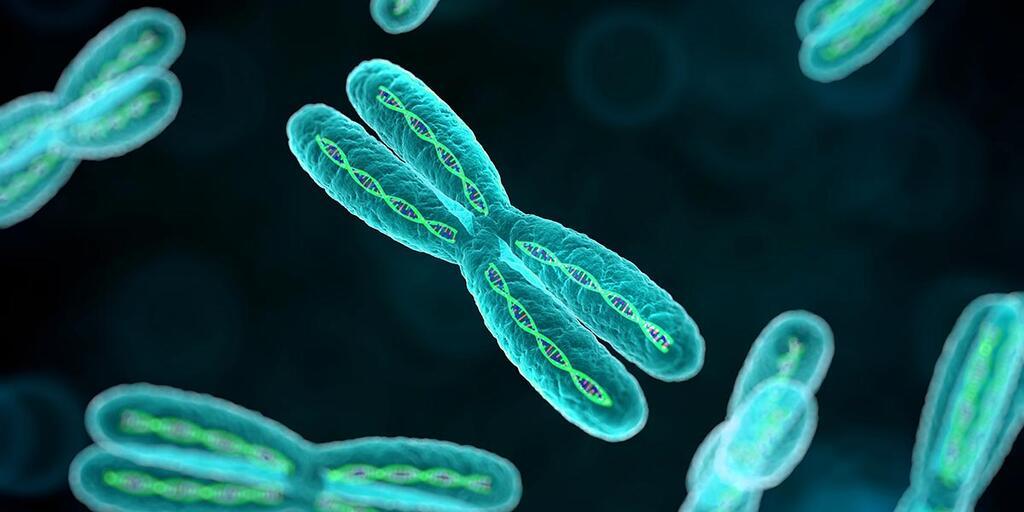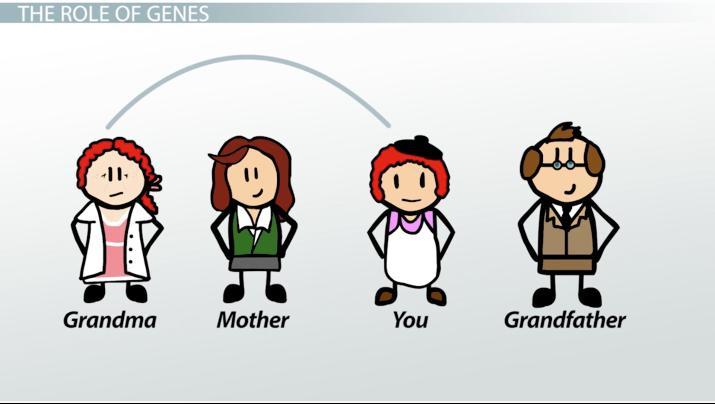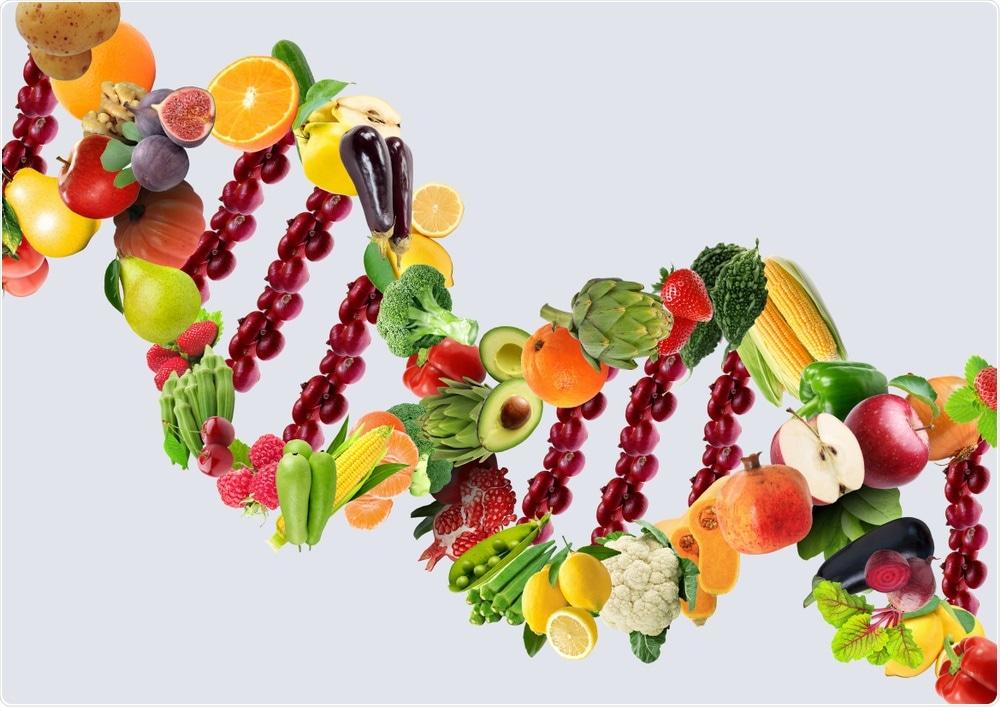Unlocking the Secrets of Fat burning: The Role of Genetics in Your Weight Loss Journey 🧬💪
As we navigate the complex landscape of weight loss and fitness, countless factors come into play: diet, exercise, lifestyle choices, and perhaps most intriguingly, genetics. While many of us embark on our fitness journeys armed with the latest diet trends and workout regimens, there lies a hidden complexity beneath the surface—the influence of our genetic makeup. What if the key to understanding our individual fat burning abilities didn’t solely rest on our choices,but also on the intricate blueprint coded within our DNA? In this article,we will explore the engaging interplay between genetics and fat loss,revealing how inherited traits can shape our metabolism,influence our body composition,and ultimately impact our ability to shed those stubborn pounds. Join us as we delve into the science of genetics and uncover how it plays a pivotal role in your unique fat burning potential.
Understanding the Genetic Blueprint of Fat Metabolism
The genetic code within our DNA serves as a complex roadmap for the myriad physiological processes that define human life, including fat metabolism. this intricate system dictates how efficiently our bodies can oxidize fat and utilize it as a source of energy. At the heart of this metabolic ballet are several key genes that regulate not only fat storage but also the pathways that convert fat to energy when required.
Research has shown that the following factors substantially influence the genetic aspect of fat metabolism:
- Fatty Acid Transport Genes: These genes play a critical role in how fatty acids are absorbed and transported to tissues for energy use.
- Adipocyte Function Genes: Variants in genes responsible for the functioning of fat cells can affect how energy is stored or released.
- Hormonal Regulation Genes: Hormones such as insulin and leptin, regulated by specific genes, can influence hunger, satiety, and fat-burning efficiency.
- Exercise Response Genes: Some individuals possess genetic traits that enhance fat oxidation during physical activity, enabling them to burn fat more effectively while exercising.
Interestingly, genetic variations or polymorphisms can result in different responses to dietary fats and exercise. As a notable example, some people may find that a high-fat diet leads to weight loss, while others may experience the opposite due to their unique genetic makeup. this personalized metabolic fingerprint emphasizes the need for tailored approaches to fitness and nutrition that consider one’s genetic predispositions.
The table below highlights some key genes associated with fat metabolism and their functions:
| Gene | Function |
|---|---|
| PPAR-alpha | Regulates fatty acid oxidation and storage |
| FTO | Impacts appetite regulation and fat mass |
| ADIPOQ | Plays a role in insulin sensitivity and inflammation |
| UCP1 | involved in thermogenesis and energy expenditure |
Understanding how these genetic components interact to influence metabolic responses can empower individuals to optimize their fitness strategies.By recognizing and embracing genetic predispositions, people can make informed decisions about their diet and exercise regimes, ultimately enhancing their ability to burn fat effectively.
The Role of Hormones in Genetic Fat Burning Potential
Hormones serve as the body’s chemical messengers, playing a crucial role in regulating various physiological functions, including metabolism and fat storage. Different hormones can influence how our bodies burn fat, and these influences can vary widely from person to person based on genetic predispositions. Such as, insulin, the hormone responsible for glucose regulation, not only impacts blood sugar levels but also contributes to fat storage when in excess. Individuals with a genetic tendency for insulin resistance may find it more challenging to maintain a healthy weight.
Another key hormone is leptin, frequently enough dubbed the “satiety hormone.” It helps to regulate energy balance by inhibiting hunger,thus serving to modulate body weight. Genetic variations in leptin signaling can heighten cravings and lead to overeating, complicating fat burning efforts.Conversely, individuals with effective leptin signaling may experience more accomplished weight management, showcasing how genetics can tilt the scales of fat metabolism.
Cortisol, the body’s primary stress hormone, also plays a important role in fat burning potential. Elevated stress levels may result in increased cortisol production, which has been linked to higher abdominal fat accumulation. Some people possess genetic variations that can exacerbate cortisol release during stressful situations, creating a metabolic challenge. Recognizing one’s stress management capability is essential for those aiming to optimize their fat burning potential.
| Hormone | Function | Genetic Influence |
|---|---|---|
| Insulin | Regulates blood sugar and fat storage | Insulin resistance genes can affect fat metabolism |
| Leptin | Controls appetite and energy balance | Genetic variations can impact hunger signals |
| Cortisol | Responds to stress, influencing fat storage | Genetic factors can heighten cortisol production |
Tailoring Your fitness Regimen to Genetic insights
Understanding your genetic makeup can offer profound insights into how your body responds to exercise and fat-burning capacity. Different individuals may possess varied hormone levels, metabolic pathways, and muscle fiber compositions—all influenced by genetics. By recognizing these nuances,you can create a fitness plan that complements your natural tendencies rather then one that forces your body to adapt in ways it may struggle with.
To optimize your training, consider the following factors influenced by your genetics:
- Muscle Fiber Composition: People have different ratios of slow-twitch and fast-twitch fibers, which affect endurance and strength training results.
- Metabolic Rate: Genetic predispositions can dictate how efficiently your body burns calories and fat,impacting your weight loss journey.
- Response to Exercise: Some tend to gain muscle faster or lose weight more effectively in response to specific types of workouts.
Incorporating genetic insights into your regimen allows you to tailor your nutrition and exercise routines to achieve the best results. as an example, if you know you have a genetic predisposition toward endurance, you might focus more on cardio and stamina-building activities. Conversely,if your genetic makeup favors strength,prioritizing weight training and high-intensity workouts could yield better outcomes.
to help visualize how genetics influences fitness responses, here’s a simplified table illustrating different genetic traits and their suggested training adaptations:
| Genetic trait | Recommended training Focus |
|---|---|
| High Muscle Fiber Ratio | Strength Training, Powerlifting |
| Low Metabolic Rate | High-Intensity Interval Training (HIIT) |
| High Endurance Potential | Long-Duration Cardio, Distance Running |
| Fast Recovery rate | More Frequent Training sessions, varied Workouts |
Nutritional Strategies: Eating for Your Unique Genetic Profile
Understanding your unique genetic makeup can significantly enhance your approach to nutrition. Different genes influence how our bodies metabolize fats, carbohydrates, and proteins, which can determine the most effective dietary strategies for fat burning. By identifying your genetic predispositions, you can tailor your eating habits to optimize energy utilization and weight management.
To begin this personalized journey, consider incorporating the following nutrients based on your genetic profile:
- Omega-3 Fatty Acids: Essential for reducing inflammation and promoting metabolic health.
- Antioxidants: Foods rich in vitamins C and E can mitigate oxidative stress, which is frequently enough linked to fat storage.
- Fiber: Aids in digestion and can enhance satiety, helping to control appetite.
- Lean Proteins: Support muscle retention, which is vital for maintaining a higher basal metabolic rate (BMR).
Genetic variations can also influence how efficiently your body metabolizes different macronutrients. Here’s a simplified table outlining some common genetic factors and their implications on dietary choices:
| Gene Variant | Effect on Metabolism | Recommended Nutritional Focus |
|---|---|---|
| FTO | Linked to appetite regulation | Emphasize fiber-rich foods |
| MC4R | Affects energy expenditure | Incorporate more lean proteins |
| PPARG | Involved in fat cell differentiation | Focus on healthy fats and whole grains |
listen to your body as you adjust your diet. Genetic predispositions mean that what works for one person may not work for another. Keep a detailed food journal to track how specific foods affect your energy levels and fat loss. This will empower you to make informed decisions and refine your dietary choices over time, ensuring that your nutrition aligns with your individual genetic profile.
Q&A
Q&A: How Genetics Affects Your Fat Burning Ability 🧬💪
Q1: What role do genes play in fat burning?
A1: Genes serve as blueprints for our biological makeup, influencing how our bodies metabolize fat. specific genetic variations can affect enzyme activity, hormone levels, and even the types of adipose (fat) tissue present, all of which contribute to how efficiently we can burn fat.
Q2: Is there a “fat-burning gene”?
A2: While there’s no single “fat-burning gene,” several genes contribute to metabolic processes. For instance, the FTO gene has been linked to body weight regulation and fat mass. Variants of this gene can affect appetite and energy expenditure, indirectly influencing fat-burning efficiency.
Q3: Can I change my genetic predisposition for fat burning?
A3: While you can’t alter your genes, you can optimize your habitat and lifestyle to work with them. Factors like diet, exercise, and sleep can significantly impact how your genetic predispositions manifest. For example, regular high-intensity interval training (HIIT) can boost metabolic rate and promote fat burning, regardless of genetic background.
Q4: How dose muscle mass relate to fat burning and genetics?
A4: Muscle tissue is metabolically active, meaning it burns calories even at rest. Genetics can influence muscle fiber composition and ease of gaining muscle mass. Essentially, individuals with a genetic predisposition for greater muscle mass may find it easier to burn fat due to a higher resting metabolic rate.
Q5: Are there any specific diets that work better for people with certain genetic profiles?
A5: Yes! Nutrigenomics is a growing field exploring how our genes interact with food. For example,individuals with specific genetic variants may process fats or carbohydrates differently. Personalized nutrition, where dietary plans are tailored to individual genetic makeups, can optimize fat burning based on these insights.
Q6: What about age and gender—do they interact with genetics in fat burning?
A6: Absolutely! Age and hormonal changes can influence metabolism and fat distribution. For example, women may experience different fat-burning challenges during hormonal fluctuations such as menstruation or menopause. Moreover, as we age, metabolic rates generally decline, emphasizing the need for tailored approaches that consider both genetic and lifestyle factors.
Q7: Can stress affect fat burning in relation to genetics?
A7: Yes, stress can impact fat metabolism. Under stress, the body produces cortisol, which can lead to fat accumulation, primarily in the abdominal area. Genetics can influence how one’s body responds to stress, potentially altering fat distribution and burning abilities. Finding effective stress management techniques can help mitigate these genetic tendencies.
Q8: Can understanding my genetic makeup lead to better fitness results?
A8: Certainly! By understanding your genetic strengths and weaknesses related to fat metabolism, you can tailor your fitness and nutrition strategies for optimal results.This could involve prioritizing certain types of workouts or dietary choices that align more closely with your genetic profile, ultimately enhancing your fat-burning efforts.
Q9: Should I consider genetic testing for fitness?
A9: Genetic testing for fitness can provide valuable insights into how your body processes calories, fats, and carbohydrates. Though, while it can guide you, it’s crucial to remember that factors like lifestyle, environment, and personal preferences play a significant role as well. Use the knowledge gained as one of many tools in your wellness toolkit.
Q10: What’s the takeaway regarding genetics and fat burning?
A10: Genetics certainly plays a role in your fat-burning capacity, but it is just one piece of the puzzle.Understanding how your unique genetic makeup interacts with lifestyle choices can lead to more personalized fitness and nutrition strategies. Remember, while genes influence potential, your actions truly shape your path to fat burning success!
Closing Remarks
the interplay between genetics and our fat-burning abilities is a fascinating realm of science that continues to unfold. While we may not have the power to alter our genetic blueprints, understanding how they influence our metabolic processes provides valuable insights for optimizing our health and fitness. Whether you’re striving for weight loss, improved athletic performance, or simply aiming for overall well-being, recognizing your unique genetic makeup can empower you to make informed choices tailored to your individual needs.
As we venture further into the science of genetics and metabolism, it’s essential to remember that lifestyle factors—such as diet, exercise, and overall wellness—remain crucial players in the game. Embracing a holistic approach that harmonizes genetic knowledge with healthy habits can pave the way for sustainable results. So, as you curve out your path toward your personal fitness goals, leverage your understanding of genetic influences to fuel your journey. After all, knowledge is not just power—it’s the key to unlocking your true potential. Stay curious, stay informed, and happy burning!



